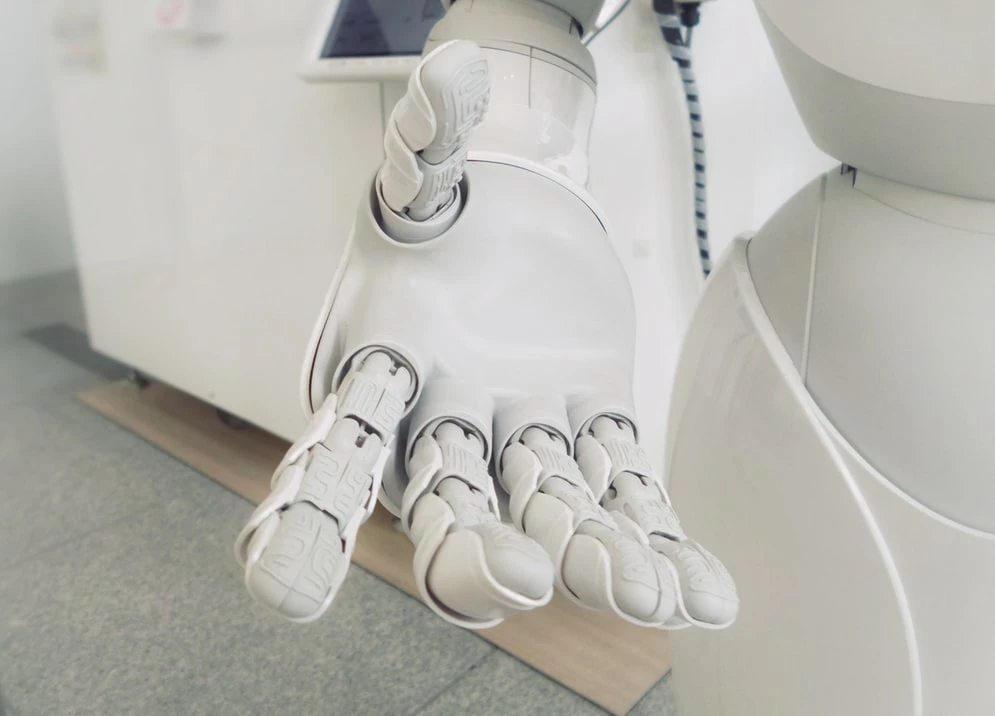
Partner Article
Generation AI: Global attitudes to healthcare technology innovation
Considered to be the most tech-infused demographic, born 2010-2025, Generation Alpha is growing up with AI benefiting their health and wellness, and technology infiltrating nearly every aspect of their lives. A recent survey by the Institute of Electrical and Electronics Engineers (IEEE) set out to explore the extent to which millennial parents trust or have faith in artificial intelligence for the health and wellness of their children.
Human donor organ availability can mean the difference between life and death. When it comes to addressing the shortage of available donor organs in comparison to those in need, scientists have experimented with growing organs in labs for many years, but we’re still years away from the technology being ready. A group of scientists have already developed a solution that will 3D print blood vessels on living tissues, possibly leading to the creation of larger, more effective organs. Bioprinting, or using 3D printers for organ and tissue engineering, is still very much in its early stage, but how would young parents feel about this in relation to their own child’s healthcare?
The IEEE study found that a majority of parents would be very comfortable allowing a properly tested and fully functional 3D printed heart to be implanted in their child if needed in the future. That said, some respondents would be extremely comfortable allowing a 3D printed heart to be implanted in their child, with the highest rates of acceptance seen in India and China, while others such as those in the US and UK are not very comfortable.
This geographical trend continues when it comes to the provision of AI-powered virtual nurses. Though telehealth, AI and remote monitoring tools are helping nursing expand care beyond in-person bedside monitoring creating a practically virtual nurse. However, a majority of millennial parents in the US and UK would not be very comfortable leaving their child in the care of an AI-powered virtual nurse during a hospital stay. This is directly compared to those in China, India and Brazil, who would be very comfortable leaving their child at the hospital in the care of an AI-powered virtual nurse.
When it comes to using artificial intelligence technologies to improve diagnoses for certain types and grades of cancer, respondents were surprisingly in agreement. Most millennial parents worldwide say they would be very likely to seek out a doctor using AI for cancer diagnoses should their child or a family member need such an evaluation. In a similar vein, people are conversing with AI chatbots that compare symptoms against a database of diseases, patient history and circumstances, then recommend a course of action. For the second year in a row, IEEE asked millennial parents across the globe how likely they would be to use an AI and speech recognition-powered chatbot to diagnose their sick Generation Alpha child.
More than nine out of 10 parents in China are likely to use an AI chatbot to diagnose their sick child in the future, including more than half saying it is ‘extremely’ likely. Conversely, respondents in the US would be less enthusiastic, with a lower percentage of respondents happy to use this technology to diagnose their child.
Finally, it seems that self-driving school buses can be stress relief for some parents, not others. Juggling work and transporting kids to school on time can be demanding for both parents and children. Autonomous technologies are being deployed in self-driving buses piloted around the world, but millennial parents are divided on how likely they would be to allow their child to take such transportation to school to minimise their stress, even if tested as safe and staffed by a caretaker robot.
A majority of American and British respondents say they are not very likely to allow their child to take a self-driving bus to school while a clear majority of parents in China, India and Brazil say they are very likely to allow their child to take such a self-driving bus to school to minimise their stress.
This was posted in Bdaily's Members' News section by D Baker .






 A legacy in stone and spirit
A legacy in stone and spirit
 Shaping the future: Your guide to planning reforms
Shaping the future: Your guide to planning reforms
 The future direction of expert witness services
The future direction of expert witness services
 Getting people into gear for a workplace return
Getting people into gear for a workplace return
 What to expect in the Spring Statement
What to expect in the Spring Statement
 Sunderland leading way in UK office supply market
Sunderland leading way in UK office supply market
 Key construction developments in 2025
Key construction developments in 2025
 Mediation must be part of planning process
Mediation must be part of planning process
 From apprentice to chief financial officer
From apprentice to chief financial officer
 Don't stifle growth with apprenticeship cuts
Don't stifle growth with apprenticeship cuts
 The start-up landscape: What lies ahead in 2025
The start-up landscape: What lies ahead in 2025
 JATCO adds welcome drive to automotive sector
JATCO adds welcome drive to automotive sector